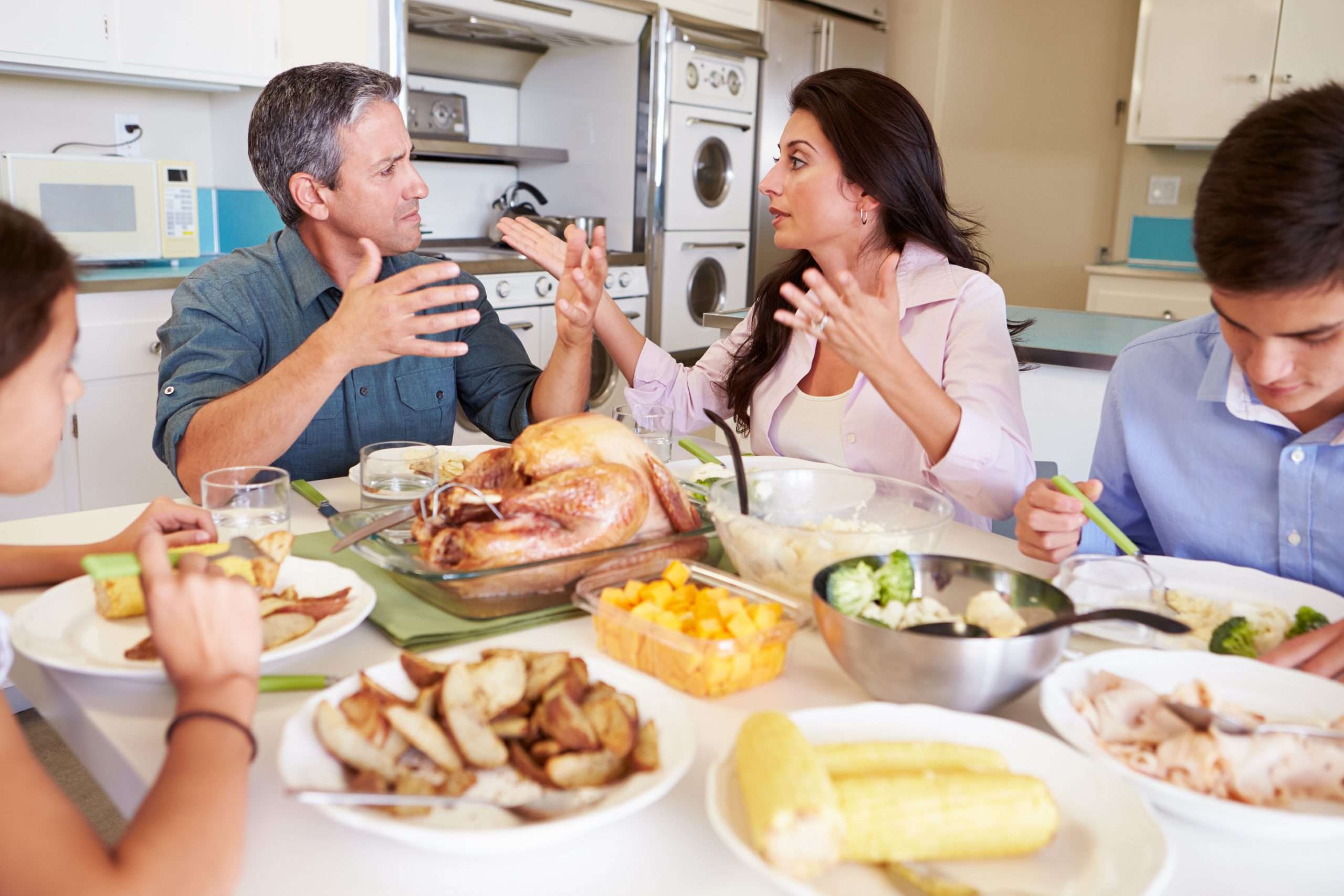Over the past several years we have seen a trend in the discourse surrounding Thanksgiving. Everywhere we look people are talking about political disagreements around the Thanksgiving table. News outlets like the New York Times, CNN, and Fox News have all published articles or op-eds discussing the issue of political fights on Thanksgiving. Late night talk show hosts like Jimmy Kimmel and comedians such as those on Saturday Night Live have made these arguments the premise of countless jokes. And, social media is rampant with posts about the dreads of holiday political banter.
To be fair, the New York Times recently published an article suggesting that family members do not talk about politics as much as suspected, but the constant public discourse and anecdotal accounts suggest it is a problem that exists.
There are plenty of sociological explanations for why family disagreements over politics may emerge at Thanksgiving. One of which is simply that emotions may be intensified by social expectations of the holiday. Here we propose that gender, race, and generational divides are three sociological factors that may lead to arguments on Thanksgiving.
Gender
In some families, Thanksgiving may bring out gender role expectations. Some families adhere to the women-prepare-the-meal, men-watch-the-football stereotypes. It may seem harmless to hold on to these holiday traditions, but the expectations to perform those roles on the grand stage in front of the whole family is surely stressful on many in the family, particularly for women who are performing not only for the men but also for the women in their family and extended family.
Importantly, although the actual holiday lasts but a day, the preparation and planning that goes into the holiday meal lasts much longer. That means the stress of the holiday can build up for weeks while planning to prepare a traditional Thanksgiving feast for the family.
Gender also impacts family dynamics on Thanksgiving beyond the binary. For trans and nonbinary folks, family holidays can be a source of uncertainty and stress rather than the as-advertised time to enjoy the company of one’s relatives. Perhaps your nonbinary cousin just came out and isn’t sure how the family will react. Will they respect that their pronouns are they/them/theirs? Maybe a family member recently transitioned and is anxious the family won’t call her by her name. Surviving the holidays—and political conversations during them—is a whole new feat when we consider gender beyond the binary.
Race
As knowledge accumulates, discourse around historical race relations in the U.S. has become increasingly critical. This increase in critical discourse means that we now understand racial stratification in the United States as a result of historically racist systems including, but not limited to, slavery, Jim Crow Laws, and redlining.
Understanding racism as a systemic problem rooted in history that includes government policy, has put race at center stage in our political discourse. The centering of race in mainstream discourse means we may be having more dinner table conversations about race, and the politicization of this discourse means people have likely developed firmly entrenched positions.
Regardless of political discourse on race, Thanksgiving in and of itself brings up a contentious racialized history. Many in the United States treasure their yearly turkey feast and therefore may remain willfully ignorant or overlook the racialized historical context of the holiday.
But, conversations around colonial genocide of Native Americans and the current hardship faced by Native groups has been associated with the holiday for many, potentially removing some festivity from the holiday. Nonetheless, many families are left trying to uphold long-held family traditions while attempting to reduce the harm of these customs to Native people leading to one additional conflict requiring careful navigation during Thanksgiving.
Generational Divides
Another issue many people face on Thanksgiving is exposure to generational diversity. From a sociological perspective generations are not simply about age, but rather about shared lived experiences of cohorts of people over periods of time. For example, the lived experiences of our grandparents who lived through WWII and/or the Great Depression are incredibly different from those of millennials who grew up in the aftermath of 9/11 and during a student-debt crisis.
These lived experiences have shaped our lived realities, meaning that two opposing parties in an argument can both be based in authentic reality.
From the lived experiences your family members bring to the table, to what they literally bring to the table, generational differences are ever present at the Thanksgiving table. Those differences, unsurprisingly, have the ability to create contentious conversations during your yearly gathering around a stuffed turkey. But, understanding that the varying opinions of your family members come from their varied lived-experience can be helpful in surviving those conversations.
Conclusion
There are many reasons that families may disagree or argue over the holidays. The fact that it appears this happens in many families across the United States, makes this a topic of sociological interest. Sociology may have many answers. Here we suggest that gender, race, and generations are three contributing factors to family arguments on Thanksgiving.
Does that mean we should shy away from important topics over the holiday? Not necessarily. The takeaway point here is empathy! We should go into our interactions with a desire and willingness to understand where the other person comes from—and not just what their argument is, but how their lived experiences have led them to support their argument.







